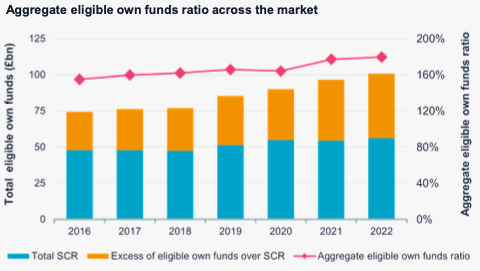The European Commission has circulated an updated draft of the Solvency II Delegated Acts to Member States in July. It is anticipated that the draft will be adopted and presented to co-legislators in September. According to a source familiar with previous versions of the document there are some changes to the current draft. In June Solvency II Wire reported that the Commission considered the March draft stable. A text comparison of the two documents conducted by Solvency II Wire shows there are no material changes to key aspects of the Long-Term Guarantees measures reported previously. However, some of the regulatory capital charges for riskier securitisation have been reduced. Notably the charge for BBB/Baa (Standard & Poor’s & Fitch / Moody’s) rated securitisation has been reduced to 5% (down from 20% in the January draft). The charge brings BBB/Baa rated securitisation much closer to the higher rated securitisation (2.1% AAA/Aaa rated securitisation).
Look-through approach text
Some of the wording of the look-through requirement for capital calculation has been tidied up but the meaning remains the same. The full text of Article 84 of the current draft reads as follows:Solvency II Wire reported in February last year that rule makers were considering introducing partial aggregation of the look-through requirement for SCR calculation.LOOK-THROUGH APPROACH
Article 84
(Art. 105 of Directive 2009/138/EC)
(a) indirect exposures to market risk other than collective investment undertakings and investments packaged as funds; (b) indirect exposures to underwriting risk; (c) indirect exposures to counterparty risk.
- The Solvency Capital Requirement shall be calculated on the basis of each of the underlying assets of collective investment undertakings and other investments packaged as funds (look-through approach).
- The look-through approach referred to in paragraph 1 shall also apply to the following:
Paragraph 2 shall not apply to investments in related undertakings within the meaning of Article 212(1)(b) and (2) of Directive 2009/138/EC.
- Where the look-through approach cannot be applied to collective investment undertakings or investments packaged as funds, the Solvency Capital Requirement may be calculated on the basis of the target underlying asset allocation of the collective investment undertaking or fund, provided such a target allocation is available to the undertaking at the level of granularity necessary for calculating all relevant sub-modules and scenarios of the standard formula, and the underlying assets are managed strictly according to this target allocation. For the purposes of that calculation, data groupings may be used, provided they are applied in a prudent manner, and that they do not apply to more than 20 % of the total value of the assets of the insurance or reinsurance undertaking.
Parliament and Council
It is still unclear when the ECON committee in the Parliament will be ready to receive the Delegated Acts. The Parliament is currently in summer recess and the next ECON committee meeting is scheduled for 3 September; the agenda has not yet been set. An ECON Work in Progress table, dated 25/7/2014, does not mention Solvency II. The document also shows that rapporteurs have yet to be assigned to most of the files. Both the Parliament and Council have a right to object to the text in its entirety within three months of its publication (either institution may request an additional three months). Conversely, early adoption is also possible. The Omnibus II text states, “It should also be possible for the European Parliament and the Council to inform the other institutions of their intention not to raise objections. Such early approval of delegated acts is particularly appropriate when deadlines need to be met, for example where there are timetables in the basic act for the Commission to adopt delegated acts.” Last month Solvency II Wire quoted an EP source saying they did not anticipate the file to encounter much challenge from MEPs.[update 14.8.2014]
Reduced #SolvencyII Charges Positive for Securitisation http://t.co/uL5N7SbZ9x
— Fitch Ratings (@FitchRatingsINS) August 13, 2014
— To subscribe to the Solvency II Wire mailing list for free click here. ]]>EU plans to lower capital charges for insurers & pension funds investing in securitisation, making it less punitive http://t.co/CouOo5QoLU
— CapitalCityIFR (@CapitalCityIFR) August 13, 2014






